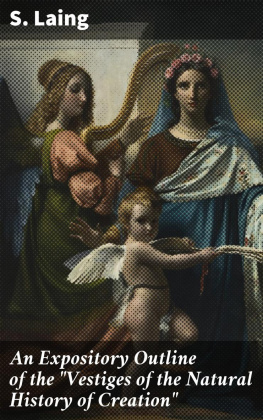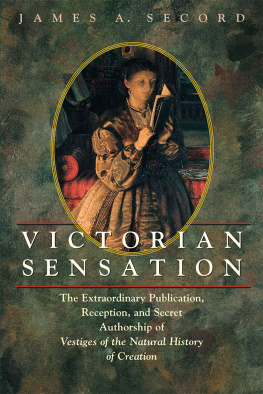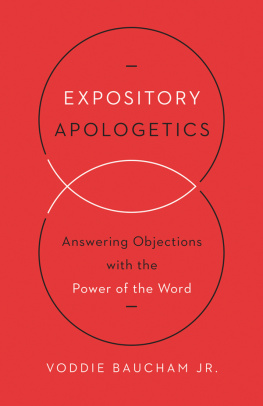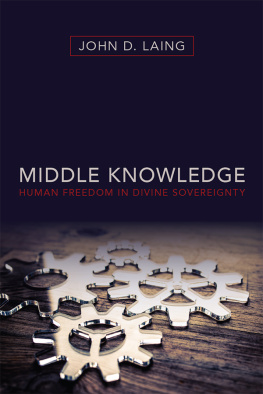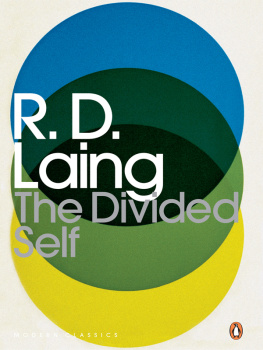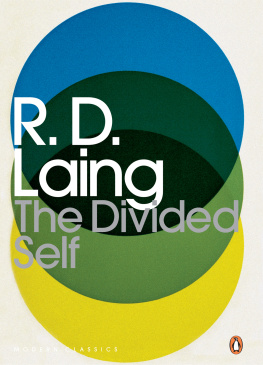ADVERTISEMENT.
Table of Contents
* * * * *
The following tractate first appeared in the form of a literary reviewin a supplement of the ATLAS; but two impressions of that journal havingbeen long since exhausted, and inquiries still continuing numerous andurgent, the proprietor has granted permission for the article to bereprinted in a separate, more convenient, and perhaps enduring vehiclethan that of a newspaper.
Few works of a scientific import have been published that so promptlyand deeply fixed public attention as the Vestiges of Creation, orelicited more numerous replies and sharper critical analysis anddisquisition. Upon so vast a question as the evolution of universalcreation differences of opinion were natural and unavoidable. Many havedisputed the accuracy of some of the author's facts, and the sequenceand validity of his inductive inferences; but few can withhold from himthe praise of a patient and intrepid spirit of inquiry, much occasionaleloquence, and very considerable powers of analysis, systematicinduction, arrangement and combination.
In what follows the leading objects kept in view have beenfirst, anexpository outline of the author's facts and argument; next, of thechief reasons by which they have been impugned by Professor SEDGWICK,Professor WHEWELL, Mr. BOSANQUET, and others who have entered the listsof controversy. These arrayed, the concluding purpose fitly followed ofa brief exhibition of the relative strength of the main points in issue,with their bearing on the moral and religious interests of thecommunity.
It is the fourth and latest edition that has been submitted toinvestigation. In this impression the author has introduced severalcorrections and alterations, without, however, any infringement ormitigation of its original scope and character. More recently appearedhis "Explanations," a Sequel to the "Vestiges of the Natural History ofCreation;" in which the author endeavours to elucidate and strengthenhis former position. This had become necessary in consequence of thenumber of his opponents, and the inquiry and discussion to which theoriginal publication had given rise. Of this, also, a lengthened reviewwas given in the ATLAS, which has been included; so that the reader willnow have before him a succinct outline of a novel and interesting topicof philosophical investigation.
In the present reprint a few corrections have been made, and theillustrative table at page 34, and some other additions, introduced.
London, January 1, 1846.
AN EXPOSITORY OUTLINE
Table of Contents
OF THE
"VESTIGES OF THE NATURAL HISTORY OF CREATION."
It rarely happens that speculative inquiries in England command muchattention, and the Vestiges of Creation would have probably formed noexception, had it not been from the unusual ability with which the workhas been executed. The subject investigated is one of vast, almostuniversal, interest; for everyonethe low, in common with the high inintellectfind enigmas in creation that they would gladly haveunriddled, and promptly gather round the oracle who has boldly steppedforth to cut the knot of their perplexities. The first impression made,too, is favourable. No very striking originality, eloquence, or genius,is displayed; yet there is ingenuity; and though the author betrays thezeal of an advocate, desirous of leading to a determinate and materialconclusion, his address, like that of the apostle of temperance, ismostly mild and equable, with occasionally a little gentlemanly fervourto give animation to his discourse. His style is mostly felicitous,sometimes beautiful, lucid, precise, and elevated. In tone and manner ofexecution, in quiet steadiness of purpose, in the firm, intrepid spiritwith which truth, or that which is conceived to be true, is followed,regardless of startling presentments, the Vestiges call to mind theMecanique Celeste, or Systme du Monde. In caution, as in science,the author is immeasurably inferior to LAPLACE; but in magnitude andboldness of design he transcends the illustrious Frenchman. LAPLACEsought no more than to subject the celestial movements to the formulasof analysis, and reconcile to common observation terrestrialappearances; but our author is far more ambitiousmore venturesome inaimwhich is nothing less than to lift the veil of ISIS, and solve thephenomena of universal nature. With what success remains to beconsidered. That great skill and cleverness, that a very superiormastery is evinced, we have conceded, and, we will also add, great showof fairness in treatment and conclusion.
No partial opening is made; the great design, in all its extent, ismanfully grappled with. The universe is first surveyed, next the mysteryof its origin. After ranging through sidereal space, examining thebodies found there, their arrangement, formation, and evolution, theauthor selects our own planet for especial interrogation. He disembowelsit, scrutinizing the internal evidences of its structure and history,and thence infers the causes of past vicissitudes, existing relations,and appearances. These disposed of, the surface is explored, thephenomena of animal and vegetable existence contemplated, and thesources of vital action, sexual differences, and diversities of speciesassigned. Man, as the supreme head and last work of progressivecreation, challenges a distinct consideration; his history and mentalconstitution are investigated, and the relation in which a sublimereason stands to the instinct of brutes discriminated. The end andpurpose of all appropriately form the concluding theme, which finished,the curtain drops, and the last sounds heard are that the name of theGreat Unknown will probably never be revealed; that "praise will elicitno response," nor any "word of censure" be parried or deprecated.
"Give me," exclaimed ARCHIMEDES, "a fulcrum, and I will raise theearth." "Give me," says the author of the Vestiges, "gravitation anddevelopment, and I will create a universe." ALEXANDER'S ambition was toconquer a world, our author's is to create one. But he is wrong insaying that his is the "first attempt to connect the natural sciencesinto a history of creation, and thence to eliminate a view of nature asone grand system of causation." The attempt has been often made, bututterly failed; its results have been found valueless, hurtfulto haveoccupied without enlarging the intellect, and the very effort has longbeen discountenanced. Great advances, however, have been made in sciencesince system-making began to be discredited; nature has beenperseveringly ransacked in all her domains, and many extraordinarysecrets drawn from her laboratory. Astronomy and geology, chemistry andelectricity, have greatly extended the bounds of knowledge; still, weapprehend, we are not yet sufficiently armed with facts to resolve intoone consistent whole her infinite variety.
Efforts at generalization, however, and the systematic arrangement ofnatural phenomena, are seldom wholly fruitless. If false, they tend toprovoke discussionto lead to active thought and useful research. Asolitary truth, though new and useful, rarely obtains higher distinctionthan to be quietly placed on the rolls of science, while a boldspeculation, traversing the whole field of creation, and smoothing allits difficulties, satisfies for the moment, and fixes general attention.Of this the


